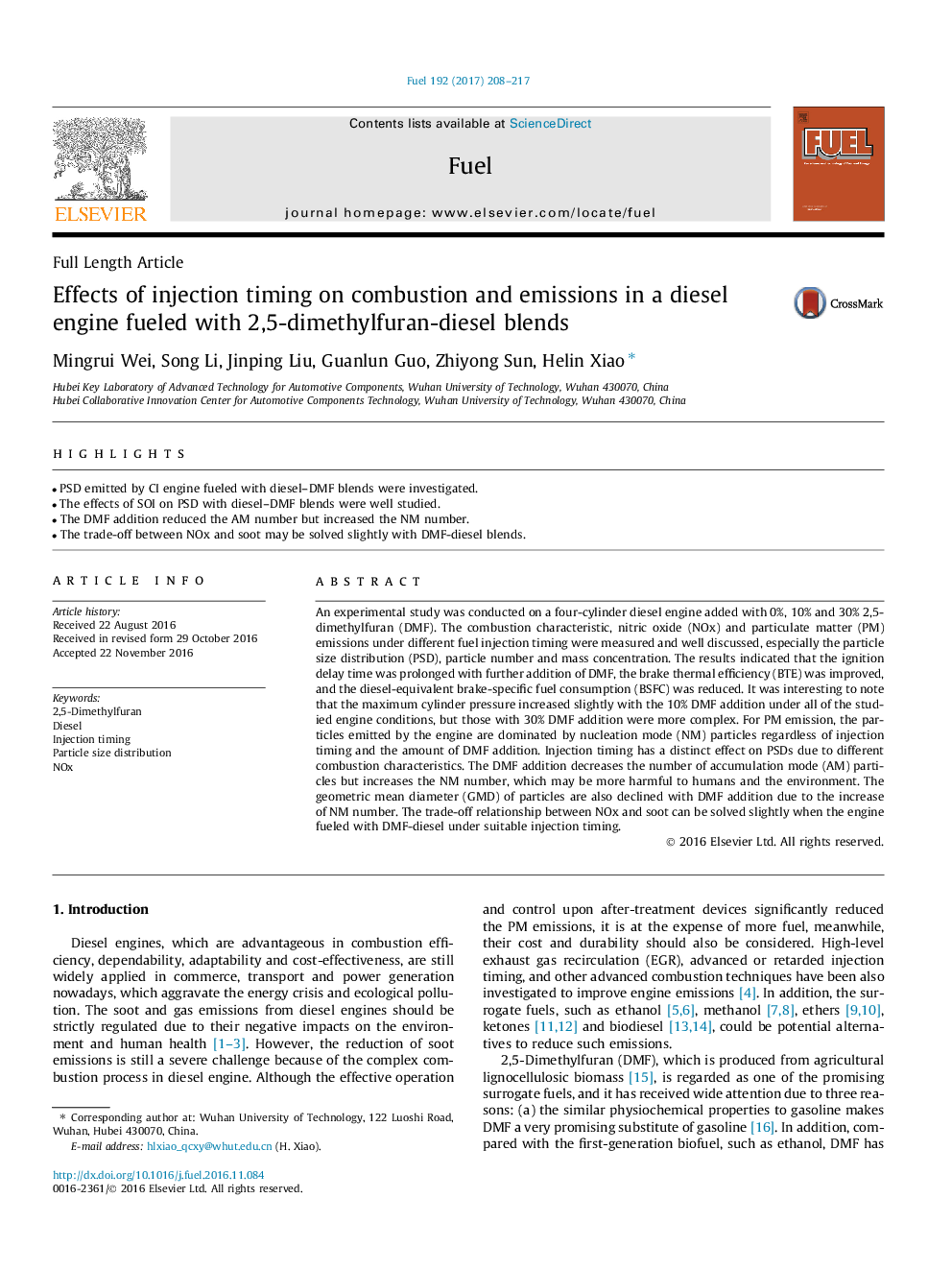| Article ID | Journal | Published Year | Pages | File Type |
|---|---|---|---|---|
| 4768740 | Fuel | 2017 | 10 Pages |
Abstract
An experimental study was conducted on a four-cylinder diesel engine added with 0%, 10% and 30% 2,5-dimethylfuran (DMF). The combustion characteristic, nitric oxide (NOx) and particulate matter (PM) emissions under different fuel injection timing were measured and well discussed, especially the particle size distribution (PSD), particle number and mass concentration. The results indicated that the ignition delay time was prolonged with further addition of DMF, the brake thermal efficiency (BTE) was improved, and the diesel-equivalent brake-specific fuel consumption (BSFC) was reduced. It was interesting to note that the maximum cylinder pressure increased slightly with the 10% DMF addition under all of the studied engine conditions, but those with 30% DMF addition were more complex. For PM emission, the particles emitted by the engine are dominated by nucleation mode (NM) particles regardless of injection timing and the amount of DMF addition. Injection timing has a distinct effect on PSDs due to different combustion characteristics. The DMF addition decreases the number of accumulation mode (AM) particles but increases the NM number, which may be more harmful to humans and the environment. The geometric mean diameter (GMD) of particles are also declined with DMF addition due to the increase of NM number. The trade-off relationship between NOx and soot can be solved slightly when the engine fueled with DMF-diesel under suitable injection timing.
Related Topics
Physical Sciences and Engineering
Chemical Engineering
Chemical Engineering (General)
Authors
Mingrui Wei, Song Li, Jinping Liu, Guanlun Guo, Zhiyong Sun, Helin Xiao,
